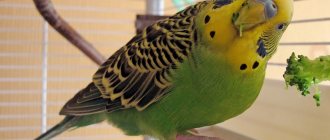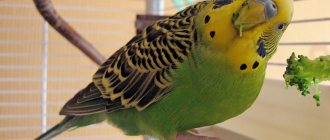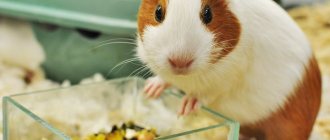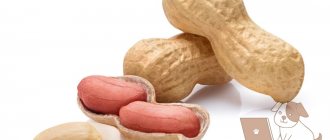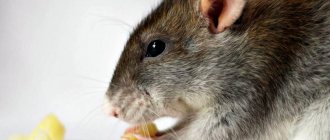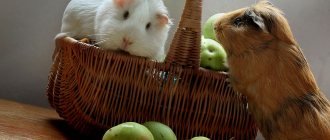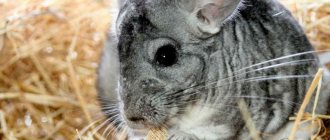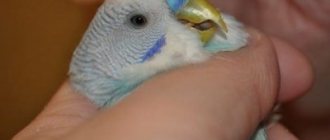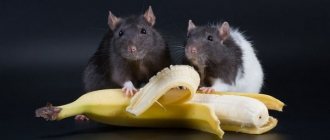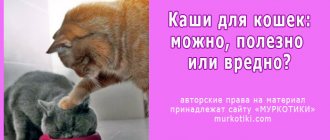Vegetables, herbs and fruits are essential in a parrot's diet. They contain a huge amount of vitamins, microelements and nutrients. Every owner should know what vegetables parrots eat.
Before you feed your parrot vegetables, you need to sort them out and inspect them. Vegetables must be fresh, ripe, free from mold and rot. Before use, they must be washed, cut into pieces, or grated. Preference is given to vegetables that were grown in the garden rather than purchased in a store.
Is fresh green vegetable allowed?
You cannot feed your birds grain alone. The pet's diet must be varied .
In their natural habitat, birds receive all the elements necessary for the body through dry food, fruits, berries, and vegetables. The latter also includes cucumbers.
In the wild - Australian savannahs and Brazilian jungles, cucumbers are found only with rare exceptions.
But local farmers successfully grow the crop on their farmland. Birds often fly into crops to feast on previously unfamiliar vegetables and fruits.
You can and even should give vegetables and cucumbers to your parrot. If a pet sits on one dry food, then after another week it will have problems with the gastrointestinal tract. A weakened stomach, as well as the immune system, is a favorable layer for the development of even more dangerous diseases.
Other
You can supplement the menu of your favorite pets with wheat, millet, and oats. If the question arises about whether it is possible to give a parrot a watermelon, then it is preferable to give one grown in a local melon at the end of summer. Parrots also love Chinese cabbage. It is not recommended to give celery.
The digestive system of parrots easily copes with the digestion of grains, young bark, herbs, and vegetables. By introducing foods that are allowed for them into the diet, the owner ensures good health and excellent mood.
Source
What is the benefit for the bird?
Many breeds show interest in cucumbers : macaws, cockatoos, eclectus, loris, budgies, etc. In addition, a bird born in captivity does not know the taste of wild fruits, berries and vegetables, so it has nothing to compare with. Culture contains an impressive amount of useful elements.
Cellulose
Some ornithologists are convinced that birds digest fiber very poorly. Others, the majority of whom think differently. In laboratory conditions, scientists have found that a small amount of fiber has an extremely positive effect on the functioning of the gastrointestinal tract.
Beta carotene
Beta-carotene contained in cucumbers helps cleanse the bird's body of accumulated toxins and prevents cellular oxidation. If the bird is kept in an apartment where there is a roadway or other sources of harmful substances outside the window, then cucumbers and other products with beta-carotene are a must. Otherwise, the constantly increasing concentration of toxins will undermine the health of the parrot.
Folic acid
The element plays a key role in the formation of tissues. In addition, folic acid is responsible for the production of amino acids and other important enzymes. If there is a lack of an element, the immune and cardiovascular systems begin to fail.
Vitamins
Group A strengthens the pet’s immunity and skin. It also greatly contributes to the formation of bone tissue. Group B1 normalizes protein and carbohydrate metabolism. B2 is responsible for the formation of red blood cells and has a positive effect on reproduction.
Vitamins C support the hormonal system, providing protection against a number of dangerous bacteria and viruses. The bird especially needs them during the molting period. The PP group has a positive effect on the nervous and cardiovascular systems.
Iodine
Cucumbers contain a high concentration of iodine, which should be taken into account when feeding with this element. Iodine improves brain activity, and at the same time blood circulation, making blood vessels more elastic. The element is also responsible for fat metabolism in the body.
Zinc
Promotes tissue regeneration and improves metabolism. A lack of zinc negatively affects the functioning of muscle groups and the musculoskeletal system. The element helps the bird to correctly sense tastes and smells, plus it regulates the production of hormones.
Sodium
The element helps normalize water exchange between tissue and blood cells. Lack of sodium affects the muscles: the bird becomes sluggish, and certain parts of the body begin to twitch. The element also maintains acid-base balance.
Some exotic subspecies of cucumbers, such as Kigelia and Kaiser, contain a different set of elements. Therefore, it is better not to experiment, giving preference to classic solutions.
What not to give
Despite the omnivorous nature of parrots, there is a list of foods that are not recommended for them to consume. This list is not categorical, but it is better to follow the recommendations and not overload your pet’s body.
Raw potatoes
Despite the fact that boiled potatoes can sometimes be given to feathered pets, it is better not to give raw potatoes to your parrot. Tubers contain many useful substances, but they contain a lot of starch, which negatively affects intestinal function.
Radish
Birds love the juicy pulp of radishes, but after eating they may experience problems in the form of upset.
This vegetable is distinguished by high levels of spice, which irritate the gastrointestinal mucosa, disrupt its functioning and can cause serious illness. Products with a pungent taste are prohibited for use on birds.
Eggplant
The negative impact of eggplant is expressed in its high solanine content. This toxic substance causes intoxication and can significantly ruin the well-being of your feathered friend.
Green and onions
The high content of essential oils and phytoncides makes onions unsuitable for use as parrot food. Once in the body, it can cause vomiting and upset. With frequent use it causes anemia.
Garlic
Despite the high content of useful substances, including anthelmintic, antimicrobial and tonic properties, garlic is dangerous for birds.
Do not eat green parts of the plant or pieces of bulbs. In case of frequent use, death is possible.
Parsley
It is categorically not recommended to feed the bird parsley root, but regarding its greens, zoologists have differing opinions. However, in order not to harm your pet, it is better to choose another type of herbs that does not contain such a large amount of essential oils.
Dill
This spice, which budgies love so much, can have a negative effect on the bird's internal organs. But this only happens if it is abused.
You can give dill to your parrot once every 2 weeks to diversify its diet.
Cilantro
Unlike other spicy plants, cilantro greens are strictly prohibited from being introduced into the diet of pets. Its components are very irritating to the gastrointestinal tract and cause discomfort.
Can there be harm?
There must be moderation in everything. The elements contained in cucumbers are beneficial for birds, but an excess of vitamins and minerals is just as bad as their deficiency. Some substances, for example, iodine, are retained in the bird’s body and are not released 100% naturally. A high concentration of even beneficial elements negatively affects the animal’s immune system .
Therefore, when offering a vegetable to your pet, you should check for the presence of similar substances in other products and, if necessary, limit their consumption. It is more advisable to design the diet in such a way that every day the parrot receives a different set of fruits and vegetables. Let's say the first day - corn, the second - bananas, the third - cucumbers, then tomatoes, etc. You also need to monitor the composition of industrial additives.
Cucumbers bought secondhand may contain nitrates and other substances harmful to animals. Therefore, it is better to give preference to trusted sellers and outlets. Also, do not forget about expiration dates. A cucumber that sits for another week will do more harm than good.
Can budgies be given cabbage?
Our Kesha is already used to the cage and has adapted to the house. We bought special food. We only know that there is not enough of it. Are parrots allowed to give cabbage? Will it do any harm?
Yes, this vegetable should be present in a parrot's diet. White cabbage is given to birds in the form of finely chopped leaves. They serve as a source of minerals, fiber, and vitamins necessary for healthy functioning. It is cabbage that is an affordable vegetable in the cold season and a valuable feed for the budgie. It is advisable that it be from your summer cottage, that is, not treated with various chemicals - they have an extremely negative effect on the bird’s stomach. Therefore, preference should be given to self-grown crops. This also applies to other vegetables and herbs that are allowed to be fed to budgies. They are an essential part of the daily diet of poultry.
Experienced poultry farmers note that their charges are very fond of carrots - a rich source of carotene, calcium, iron and organic acids. The vegetable needs to be grated or finely chopped. Some owners offer their birds carrots mixed with a boiled egg or cottage cheese. You can combine this vegetable, for example, with zucchini or squash - they are also rich in fiber and B vitamins. Pumpkin is another vegetable component of the budgerigars’ menu. It contains a lot of sugars and microelements that support the vitality of birds. Vegetables should only be given when ripe and chopped. Cucumbers, as a component of the birds' menu, are rich in potassium and vitamin E. But you should not offer greenhouse vegetables to wavy birds. After all, they will not bring any benefit to a tiny body. Often such products are oversaturated with nitrates. This also applies to greenhouse tomatoes. Parrots and bell peppers love them. Spicy is prohibited.
We recommend reading: Cat Pushes But Doesn’t Give Birth
As for the prohibited vegetables in the menu of budgies, these are eggplants, radishes, garlic, radishes, and celery. The owner of a bird should always take into account its taste preferences. Doesn't the bird eat cabbage? You won't force it. If you see that a vegetable has lain untouched from morning to evening, throw it away. There is always a fresh alternative.
Yes, this vegetable should be present in a parrot's diet. White cabbage is given to birds in the form of finely chopped leaves. They serve as a source of minerals, fiber, and vitamins necessary for healthy functioning. It is cabbage that is an affordable vegetable in the cold season and a valuable feed for the budgie. It is advisable that it be from your summer cottage, that is, not treated with various chemicals - they have an extremely negative effect on the bird’s stomach. Therefore, preference should be given to self-grown crops. This also applies to other vegetables and herbs that are allowed to be fed to budgies. They are an essential part of the daily diet of poultry.
Cabbage for a parrot
Cabbage is also a good food for parrots, which contains a large amount of microelements. Cabbage is valuable for its abundance and long-term storage. This is one of the main food for parrots in winter. It is necessary to feed cabbage to the parrot raw, giving only the leaves whole. The stalk should be finely chopped or grated.
Carrots for a parrot
Carrots are a particularly valuable food for parrots, containing carotene and many other useful substances. Carrots should be fed only raw, first cut into small pieces or grated. It is recommended to mix with other ingredients, such as boiled eggs, breadcrumbs, etc.
Cucumber for a parrot
Cucumbers can be included in a parrot's diet, but they are not of great importance. They are consumed only fresh as food containing vitamins and microelements.
Potatoes for a parrot
Potatoes contain a lot of starch, but few vitamins and microelements. You can feed your parrot either raw or boiled, and should be given in small portions. You should not give your parrot tubers that have sprouted or turned green. They contain a substance that is poisonous to parrots - solanine, which can cause poisoning in a parrot.
Tomato for a parrot
Tomato is also a good type of food that contains carotene. Tomatoes do not have any side effects on the parrot's body. The parrot is fed only fresh; parrots give special preference to seeds.
Pumpkin for a parrot
Pumpkin also contains carotene, similar to previous fruits. Feed pumpkin raw. Pumpkin seeds have a mild anthelmintic effect.
Beets, turnips, onions, lettuce, spinach.
All of these vegetables are also suitable for adding to a parrot's diet. Beets, like cabbage, are valuable for long-term storage. This vitamin food can be fed fresh to the parrot in winter. Onions - mild varieties should be used. In winter, you can sprout onions and give greens in small quantities. Turnips are fed to the parrot in the same way as cabbage; it must be finely chopped or grated. Spinach or lettuce should be given in small quantities. May cause minor digestive upset if taken in large doses in the diet. Do not give the parrot wilted or wet stems; they must be dried.
Wild herbs, grass seeds.
Weeds are also suitable for consumption, especially during the seed ripening period. For example, parrots willingly eat dandelion baskets. You can also make herbal flour from weeds. Let's take nettle, you need to cut off the upper third of the stem with leaves during flowering, tie the cut stems into a bunch and dry until completely dry. After this, put the bunches in a bowl and crush, the flour is ready. Pour hot water over this flour, strain through a sieve or cheesecloth and add to any liquid mixture for the parrot. You can also use this flour in dry form, you need to sprinkle it with grated boiled egg or soaked bread.
Branches of bushes or trees
Tree branches are necessary for parrots to grind down their beaks. When grinding down the beak, the parrot receives an additional small amount of vitamins and microelements contained in the bark and buds of the branches.
Carrots are a particularly valuable food for parrots, containing carotene and many other useful substances. Carrots should be fed only raw, first cut into small pieces or grated. It is recommended to mix with other ingredients, such as boiled eggs, breadcrumbs, etc.
How to give it to a bird
First, you should understand that a parrot’s diet consists of a base and additives. Grain feed serves as the base: its share should be about 70-80%. Everything else is supplements: fruits, berries and vegetables.
Parrots eat cucumbers with pleasure, but they cannot eat green vegetables alone. The elements contained in it will not be able to satisfy the needs of the bird’s body. Before serving, the cucumber If we are talking about small birds, such as budgies or lovebirds, then the skin should be trimmed, otherwise they will choke. Cockatoos, Grays and other large pets have no problems in this regard.
Some breeds of parrots do not tolerate the elements contained in cucumber well. In such cases, it is necessary to consult an ornithologist, professional breeder or veterinarian.
If the bird does not show interest in the offered delicacy, then the cucumber can be finely chopped or grated. Vegetables must be fresh and free of foreign odors. Cucumbers intended for your pet should not be stored next to strong-smelling foods, otherwise the parrot will refuse them.
Not all birds are willing to eat from their hands, so it would be a good idea to get a special holder for fruits and vegetables. They are attached to the inside or outside of the cage. You can buy them at any pet store.
As for the daily intake, it all depends on the size of the pet. For budgerigars, a small slice is enough, while a massive macaw can eat half a medium-sized cucumber without any harm to its health.
Is it possible to give a parrot a cucumber?
Don't: COFFEE. The caffeine contained in coffee is very toxic to parrots. Even a small sip of coffee can lead to disorders of the nervous system, disruption of the liver, and caffeine also puts a huge strain on the heart. MILK AND CREAM. Birds do not have lactase in their bodies, which is necessary to break down lactose (milk sugar). Consuming milk and cream leads to fermentation in the parrot's stomach, which in turn causes diarrhea and dysbiosis ALCOHOL. Parrots almost immediately get used to alcohol, but even a single use leads to disruption of the central nervous system, burns of mucous membranes, and disruption of microflora. Toxic substances contained in alcohol cause cirrhosis of the liver. There are cases of immediate death of birds after consuming alcoholic beverages. POTATO. Raw potatoes contain alkaloids, the concentration of which is very dangerous for a parrot. Boiled potatoes are very heavy food for poultry BREAD. Bread contains salt, milk, sugar, butter, and various flavorings. Parrots that eat bread very often suffer from chronic dysbiosis, as well as candidiasis. The bread in the parrot's stomach turns into a sticky mass, which causes indigestion CHOCOLATE. Chocolate contains caffeine and theobromine from the methylxanthine group, which are poisonous to parrots. Possible death. CHEESE. The cheese contains salt, flavoring additives, preservatives; in addition, the fat content of this product has a detrimental effect on the liver and gastrointestinal tract of the parrot. FRIED FOOD. Under the influence of temperature, carcinogenic substances are formed in the oil, which affect the functioning of the bird’s liver and cause stomach upset. FATTY FOOD. Fat interferes with the absorption of calcium and phosphorus, which provokes a violation of phosphorus-calcium metabolism, as a result of which the parrot experiences convulsions and lack of coordination. FISH FAT. It is impossible to calculate the amount of vitamin D3 contained in fish oil, which can lead to excess calcium in the parrot's body. As a result, the parrot develops kidney calcification, metabolism is disrupted, and even death is possible. SAUSAGE AND MEAT PRODUCTS. All these products contain preservatives, fats and salt, which have a negative effect on the kidneys, liver, pancreas and blood vessels SPICY HERBS. Spicy herbs (parsley, dill) contain an increased concentration of essential oils, which are toxic to the parrot. EGGS. Eggs are given only to chicks or nesting parrots. For females kept alone, eggs are contraindicated, as they provoke egg laying, which is dangerous to the health of the bird. FROM FRUITS CANNOT - avocado, mango, nuts, papaya, persimmon.
You can (and should): VEGETABLES. Legumes (beans, beans, soybeans, chickpeas, peas, mung beans, lentils), broccoli, zucchini, cabbage, kohlrabi, corn, chard, carrots, cucumber, sweet bell pepper, radish, radish, turnip, arugula, lettuce, head lettuce and leafy, beets, celery, tomatoes, turnips (greens and root vegetables), pumpkin, Chinese cabbage, cauliflower, chicory, zucchini. FRUITS. Apricots (pitted); quince; a pineapple; oranges; watermelon; bananas; cowberry; grapes and raisins (in moderation, raisins - steamed); cherry (pitted); pomegranate; pears; honey melon (in season); blackberry; figs; kiwi; strawberry; cranberry; dried apricots (steamed); lemon; tangerines (except peel); raspberries; nectarine (pitted); sea buckthorn; peach (pitted); pomelo (except peel); Rowan; plum (pitted); currant; feijoa; dates (steamed); blueberry; prunes (steamed); rose hip; apples.
Source
A few reasons against
Quarreling
Even between two identical feathered pets, hostility can arise. What can we say about different types of birds? A pair of birds such as a budgerigar and a cockatiel may simply not get along in the same cage. Especially if one bird is suddenly and without preparation placed with another.
When a parrot lives in a cage for more than two to three weeks, it begins to consider it its territory. Gradually the pet gets used to doing without its fellows. The sudden appearance of a neighbor can unsettle him from his usual lonely life and lead to a quarrel.
If a fight breaks out, the cockatiel will begin to peck at the opponent. And thanks to its powerful beak, it can cripple the “wavy”. If there are a lot of budgies, then the cockatiel is unlikely to cope alone. In any case, the quarrel that arises will not lead to anything good.
Nuances of feeding
It is impossible to create the same properly balanced diet for birds of different species. If a cockatiel and a budgerigar eat from the same feeder, they will not receive enough vital substances. As a result, this state of affairs will lead to the birds getting sick.
Risk of complications
If a cockatiel and a budgerigar start living in the same cage, they will be in close contact. If one of the birds gets sick, it will infect the other. Simultaneous treatment is extremely inconvenient, because each pet requires a different dosage of medication.
Cell selection
It is very difficult to choose a cage that is suitable for both feathered pets. Large cages with sparse bars are suitable for cockatiels, and small cages with sparse bars are suitable for budgies.
In a small cage, the cockatiel will suffer due to insufficient space for normal life activities. And a budgie can hurt its neck in a cage with sparse bars.
In addition, for cockatiels and "wavy" it is necessary to select completely different accessories for the cage. For example, unlike cockatiels, budgies should have:
- small toys;
- smaller drinking bowl;
- shallow feeder;
- perches with a diameter of at least fifteen millimeters.
For cockatiels, objects this small will be uncomfortable.
Birds of different sexes
If a male and a female of different species live in the same cage, then they can make attempts to create a pair. Let's say a female budgerigar takes a liking to a male cockatiel. As a result, she will begin to experience constant stress due to the impossibility of continuing the relationship. Also, the female may begin to lay unfertilized eggs, which will lead to calcium deficiency in her body.
It is unlikely that separating the birds will help in this case, because budgerigars tend to choose a mate for life. If the “wavy” is separated from his chosen partner, this can only worsen the situation. Even though it's a cockatiel. The bird risks getting sick from melancholy and depression.
If the owner of feathered pets decides to breed a particular species of bird, then events may not develop as he would like. Sympathy between a cockatiel and a budgie sometimes arises, even if they are in different cages. In this case, the bird in love may develop antipathy towards the new neighbor of the opposite sex, placed by the owner in its cage. Up to and including fights. For example, if a female budgerigar pecks a male of her own species, then there can be no question of any procreation.
Supplements and vitamins
They are sold ready-made in pet stores. The main such additives include:
- Chalk. It is an ideal source of calcium, the deficiency of which in birds worsens the condition of their claws and beaks. Chalk is sold in the form of special toys or in grated form. You have to use exclusively specialized purified chalk, so it is forbidden to give the wavy construction chalk, which contains numerous impurities and additives that are harmful to the bird.
- Eggshell. It should be washed well, and it is recommended to give it in crushed form. It contains a lot of magnesium, sulfur, calcium and iron, so it is an ideal source of vitamins for a small bird.
- Bone flour. It is offered in grated form at every pet store and also contains calcium and phosphorus. It is often used by manufacturers of feed mixtures, so if you buy a high-quality product, then there is no need to additionally buy bone meal.
Pet stores offer customers specialized vitamins and minerals. They are often small toys that are attached to the walls of the cage. Parrots eat these supplements while playing, which has a positive effect on their health and appearance.
Water
Budgerigars should always have free access to clean water. It is poured into special drinking bowls, available on the market in various shapes and sizes. The water is changed daily, otherwise it quickly becomes polluted. But not all water is suitable for birds.
It is recommended to give the birds boiled liquid. Raw water is allowed only if it is previously well purified and therefore does not contain harmful components. It is allowed to use mineral water with gases, which is pre-filtered. This water contains potassium, magnesium and sodium. It is allowed to pour a decoction of chamomile or rosehip into the drinking bowl.
Wavys can be given a small amount of freshly squeezed juice, which is mixed with water, and lemon or apple juice without additives is usually used.
Kakariki and wavy
Advantages of keeping a budgie:
- one of the cheapest options in terms of cost;
- no unpleasant odor;
- the ability not to clean up after them for several days;
- rarely susceptible to various types of diseases and pests;
- get along well with other bird species;
- you can teach to speak, and quite well;
- may be alone indoors for long periods of time.
Compared to the kakarik, the budgie is much easier to care for and maintain. But it also has a number of negative sides:
- very noisy friend. It can react noisily to any event occurring in the apartment. Quite restless and loves to play with noisy toys: a bell, for example;
- loves to litter a lot. Scatters food not only throughout the cage, but also outside it;
- poorly trained. Especially in a situation where the bird lives with other species or in more than one unit;
- life expectancy is only 10-15 years, which is significantly less in comparison with other small parrots;
- capable of showing aggression if approached incorrectly. For example, it hurts to bite.
Kakarik and budgerigar are compatible both in character and size. Being friendly towards similar species, they are easy to keep together. Moreover, the kakarikas will have more fun this way. They need more communication than the standard look.
Choose a high-quality seed mixture that your birds will enjoy eating.
Your task is to find or make your own mixture that has a wide variety of grains. What seeds do lovebirds eat from seeds? Perfect for: millet, canary grass seeds, oatmeal, niger seeds, flax, sunflower, safflower and rapeseed.
Other seed mixtures may contain soybeans, fennel seeds, rye, whole brown rice, sesame and poppy seeds.
- The seeds do not have much nutritional value for lovebirds. Therefore, they are recommended to be given only in very small quantities as treatment. They should never be your bird's only food source.
- Use only fresh seed mixture. If it smells dusty or old, you shouldn't give it to lovebirds.
